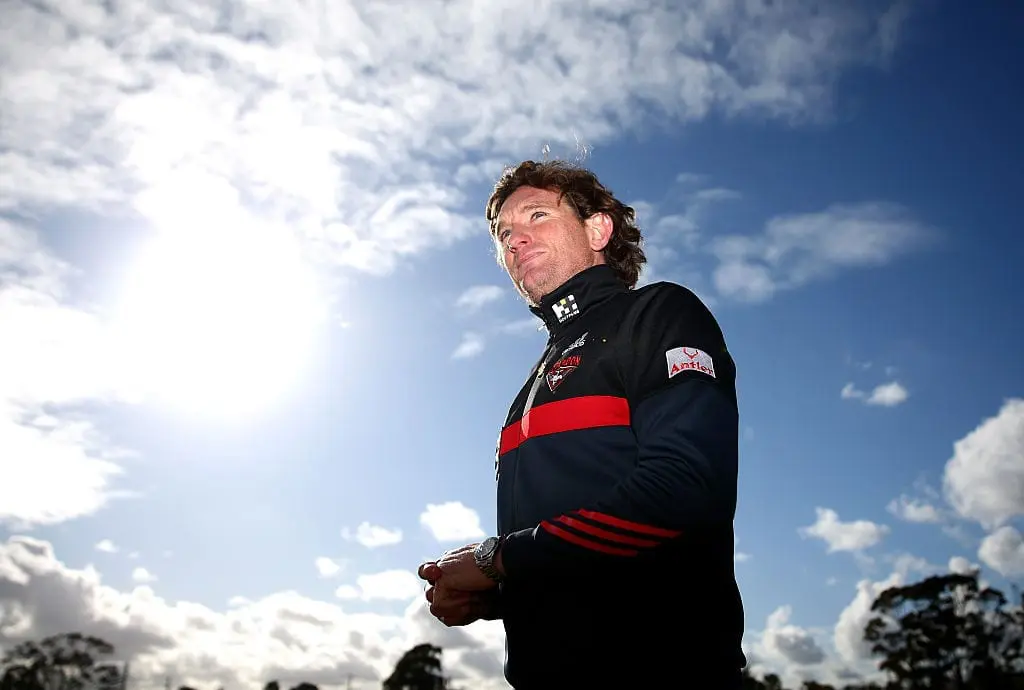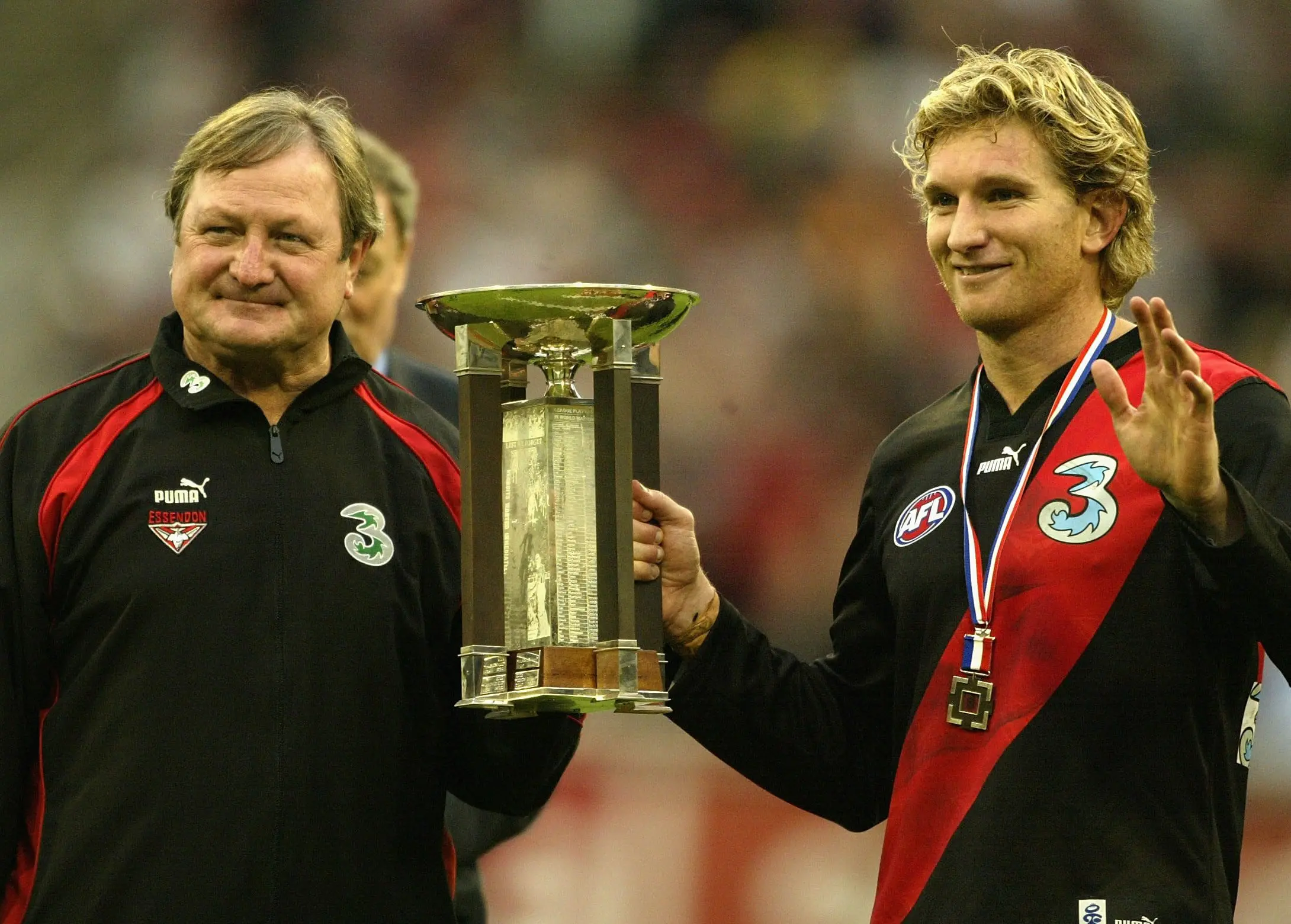While Melbourne Cup Day provided Melbourne's masses with a labor-free day last Tuesday, the latest instalments of 'The Bombers: Stories of a Great Club' continued to run down the straight unimpeded.
Although episodes 3 and 4 of the 'Fox Sports' aired docuseries charted the Dons' lean years of the 70s and early-80s, the latest pair were bookended by premiership glory for the famous old club.
Having taken an outsider's view of the sterling stills, snippets and stories of the past fortnight, I've once again poured through the record books and pondered another set of questions that arose across the series' penultimate week.
So, before the final set of chapters are aired and completed next week, here are another 10 queries that cropped up from the recount of Essendon's most recent golden age.
How close was James Hird to being delisted in reality?
Although the thought is almost impossible to digest given his glittering career saw him earn almost every accolade on offer, but once upon a time, James Hird was a majority vote away from the footballing scrap heap.
While the notion that the Bombers' golden boy was on the verge of being delisted was raised last Tuesday night, the nuts and bolts of Hird's lifeline weren't openly discussed.
So, as someone whose eyebrows were raised by the prospect of a ‘Hird-less' Essendon, I immediately fired up Google in an effort to get to the bottom of a narrative that has remained virtually unaired across the past three-decades.

Having been drafted with the 79th pick of the 1990 draft, cynical arguments could have been made that the only reason the Canberra-born Hird had made his way to Windy Hill was due to his family's lineage at the club.
Given a grandstand on Brewster Street still bears the name of James' grandfather and former boardroom giant, Allan Hird Snr, if you were someone that ever subscribed to this theory, your view certainly doesn't appear baseless.
And after failing to debut in his first season and only managing four appearances in the number 49 guernsey throughout his second, it appeared that the naysayers had begun pervading the boardroom by the end of 1992.
According to a piece by Jonathan Horn of The Guardian in 2015, a six-person vote was undertaken as to whether the skinny, third-generation Bomber was worth persisting with - a poll that saw Hird saved by a 4 to 2 margin.
Despite the fact that the identities of those who were happy to heave-ho Hird have remained under wraps, what is known is that Kevin Sheedy was the man who went in to bat for his future captain.
As Hird was voted as Essendon's third greatest ever player a full five seasons before his retirement, I guess one of the many morals at play here is to never question the former plumber's judgement.

*** Local Caption *** Kevin Sheedy;James Hird

























